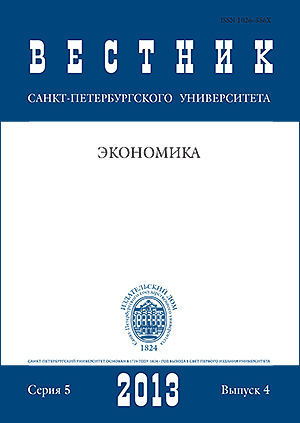Russian Economy after Recovery: Temporary Slowdown or New Growth Trend
Abstract
The paper considers development of Russian economy after passing the lowest point of recession. The author marks the change of growth path and analyzes current approaches to explanation of growth slowingup. One of intensively developed theories explaining current process is the “middle income trap” conception. This theory concerned with prospects of catching-up development economies.
As cross-countries researches show, transition from the fast economic growth to stagnation happens when fast-growing countries approaching the level of top economies. The paper demonstrates that Russian economic dynamics does not match the model of “middle income trap”. Stagnation threat caused by the gross factor productivity slowdown appears to be strategic point for Russian economy and requires systematic
efforts for investment climate improvement, as well as structural changes toward the high value-added sectors. Current slowdown processes are based on the conjuncture caused by economic policy and agents expectations.
Keywords:
middle-income trap, economic stagnation, economic agents expectations
Downloads
References
References in Latin Alphabet
Translation of references in Russian into English
Downloads
Published
How to Cite
Issue
Section
License
Articles of the St Petersburg University Journal of Economic Studies are open access distributed under the terms of the License Agreement with Saint Petersburg State University, which permits to the authors unrestricted distribution and self-archiving free of charge.






